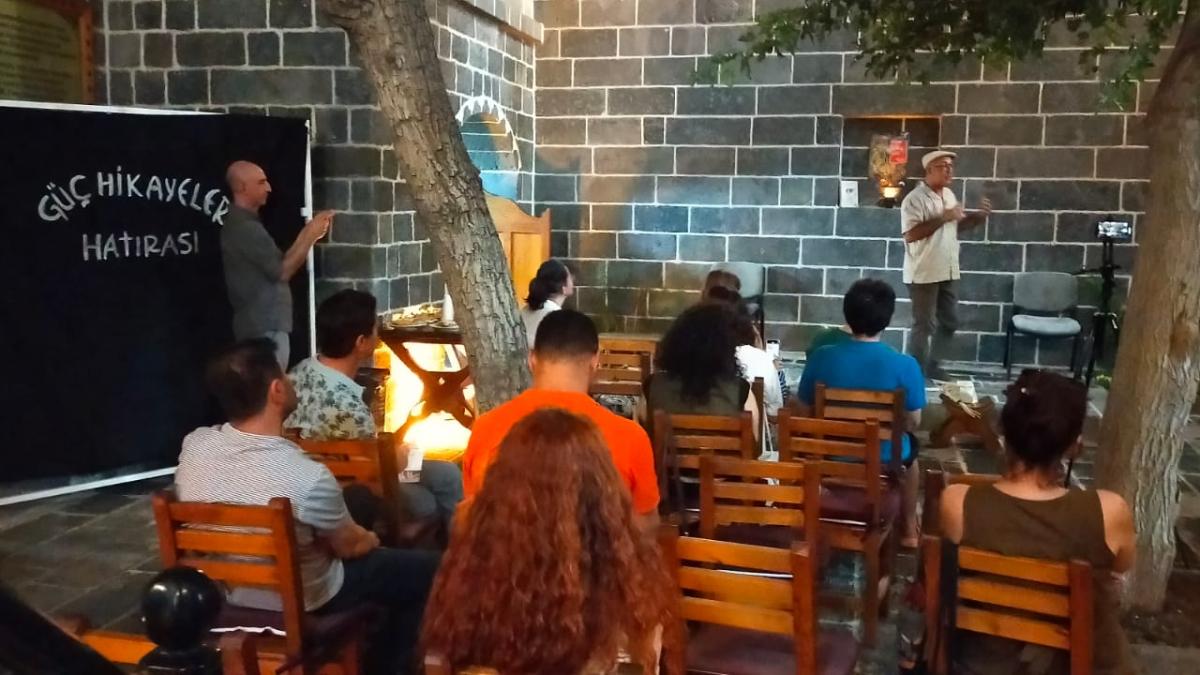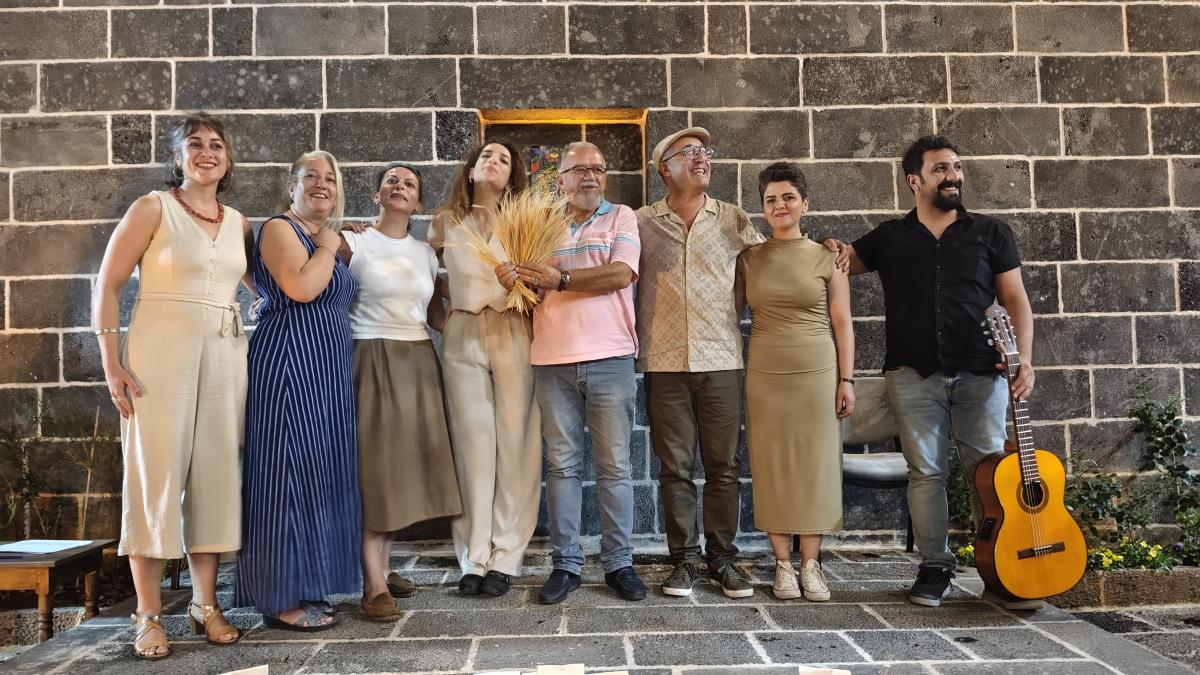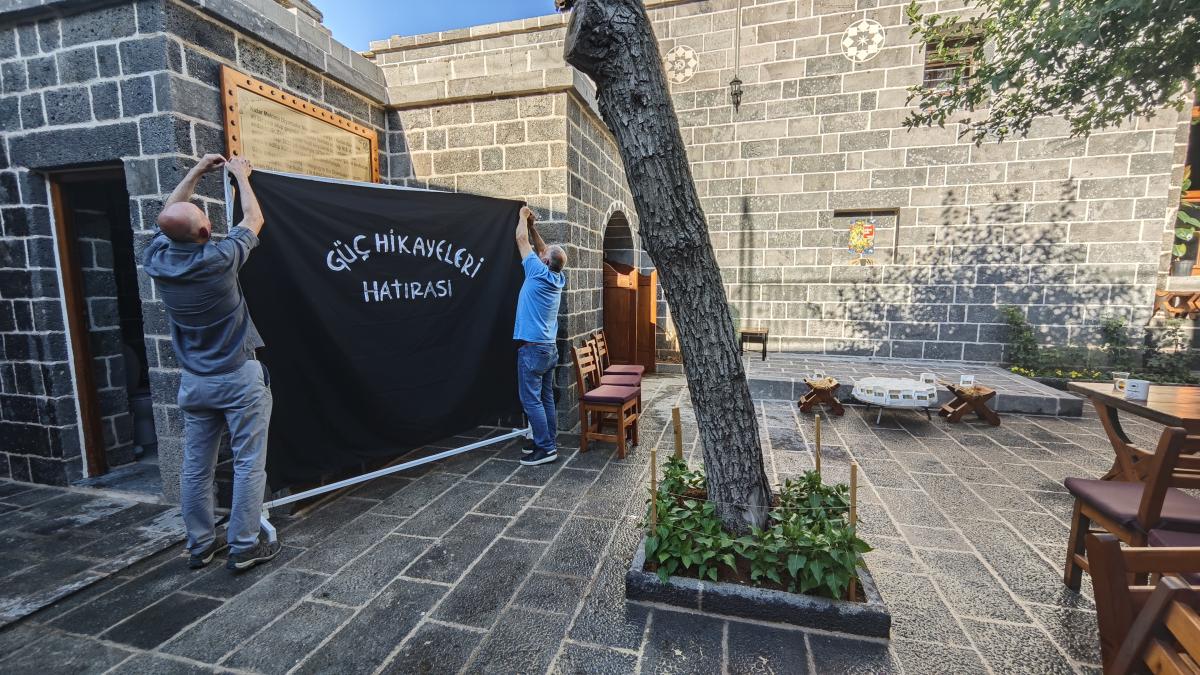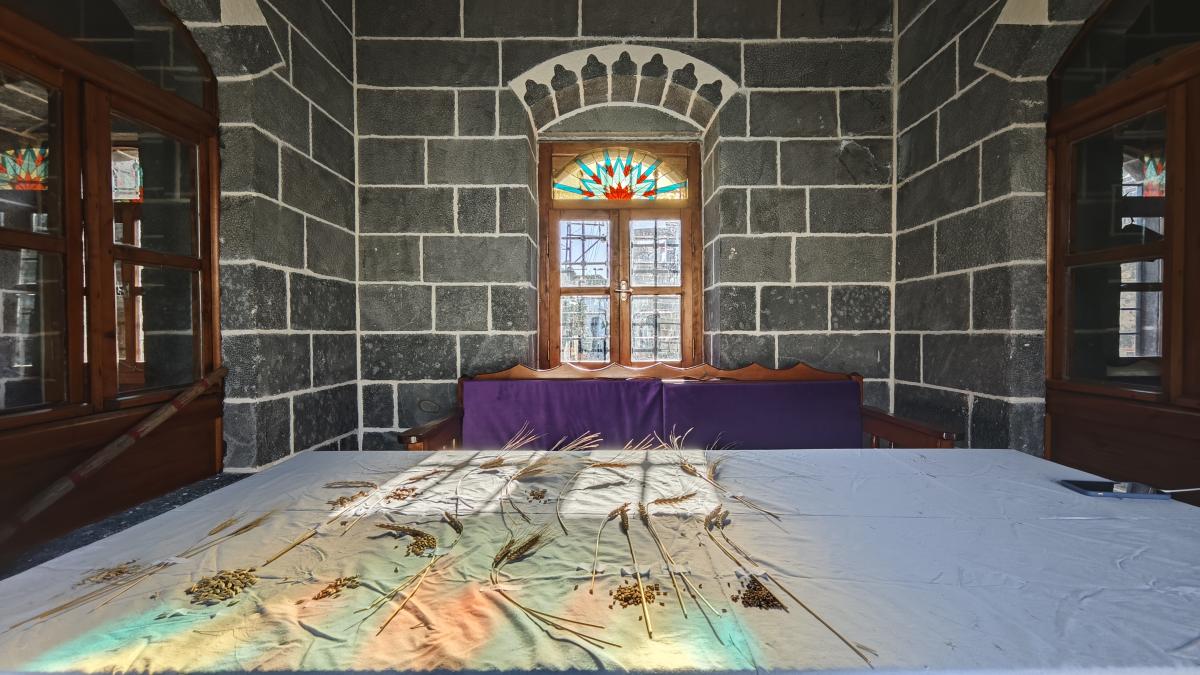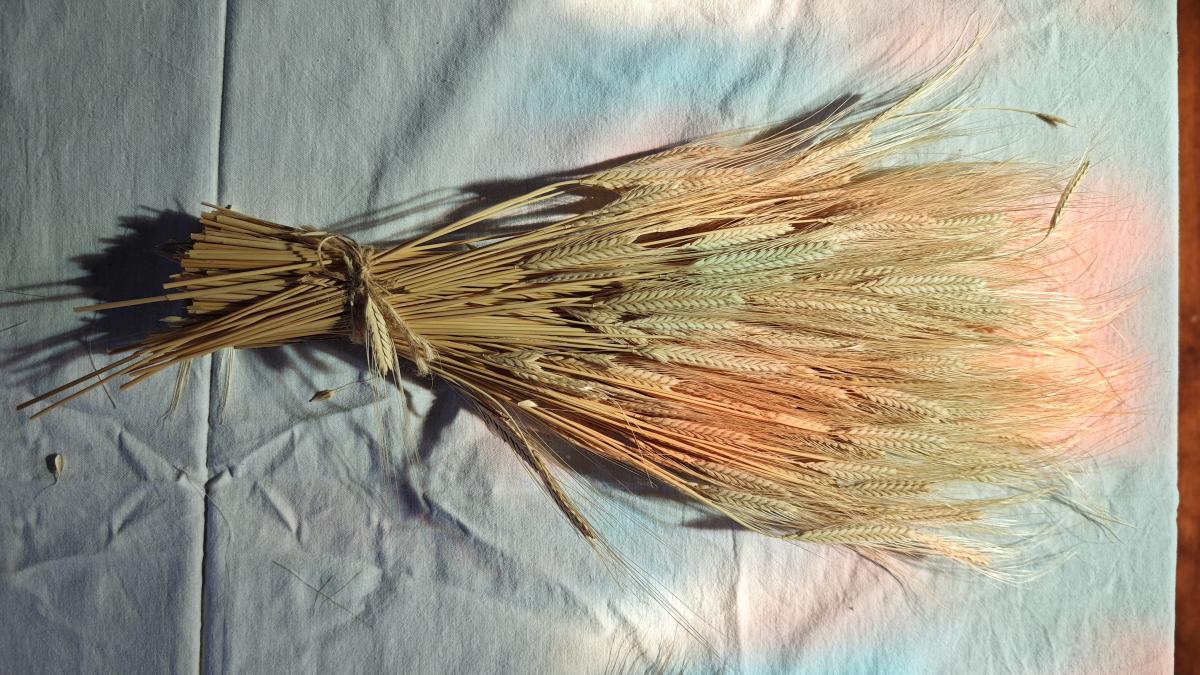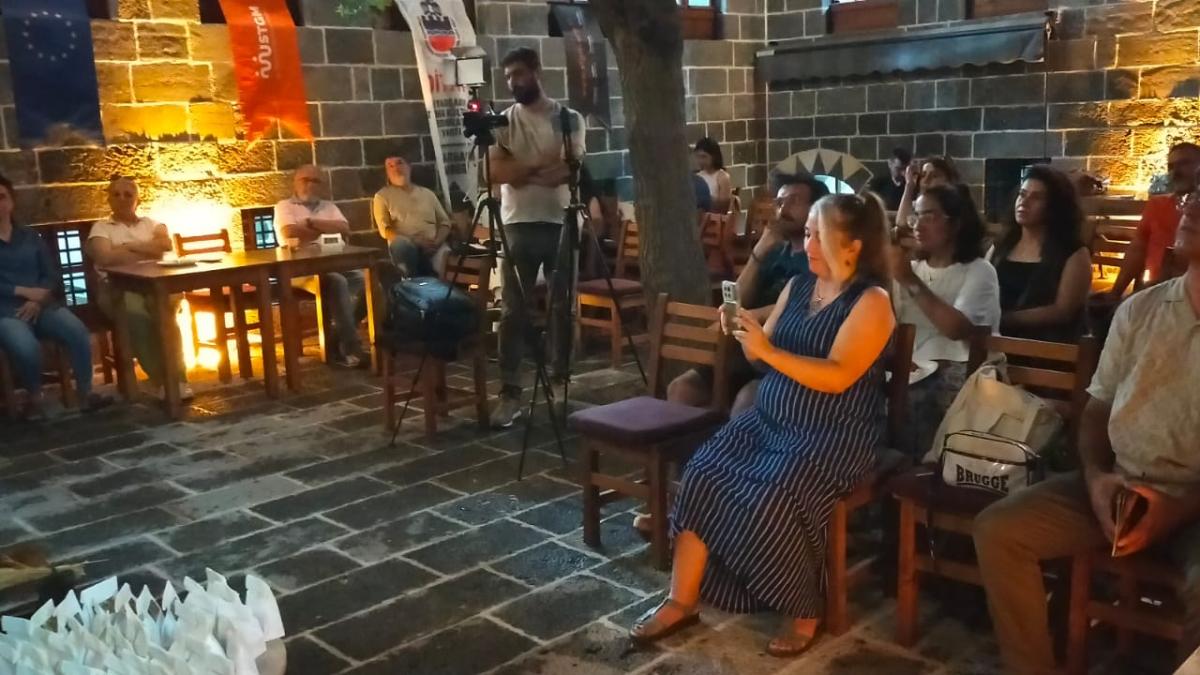
In the "Power Stories" event entitled “Yokuş Yol’a”, which owes its name to a poem by Turgut Uyar, we followed the traces of different lives from Çanakkale to Van, from Diyarbakır to Ankara; we listened to the unofficial stories of those who search for their roots in exile, in nature and at the borders. Şeyhmus Diken from DİTAV, the host of the meeting, opened the Power Stories meeting by saying that everyone returns to their childhood and homeland when they grow up, just as I returned to Diyarbakır.
We heard from Mustafa Alper Ülgen about his childhood spent with his grandmother on the shores of Lake Hazar, about his love for nature and the land, about his forced migration to Diyarbakır when he entered primary school, and about the interruption of his new life in Diyarbakır when his father was exiled to Konya after being charged during the 12 September trial. Mustafa Alper, a farmer who grows heirloom seeds and local wheat varieties, a cook who works with local flavours, and also an environmental activist who fights against the plundering caused by mining in the Kazdağları region, concluded his narrative with the cultivation of heirloom seeds and local wheat varieties and his rebuilding of life by baking bread.
The second storyteller, Umut Şener, talked about the difficulty of telling stories in Diyarbakır, the city of stories, explained that she is also a story collector and told the story of Melek with herself. Umut Şener, who pointed out that the seeds can be protected despite all the difficulties thanks to the clove apple she received from Melek and that hope can be protected in the world as long as there is a seed; We also listened to why she became an agronomist and deals with ecocide.
The last storyteller of the evening, Ruken Ay, told us about her childhood in Van, the pain of being a young girl in a religious family, the great earthquake she experienced, how she suddenly found herself as a child labourer while thinking about studying and becoming a judge, and how after all this she became a lawyer working internationally for human rights. With the question “Can the subaltern speak?”, Ruken also introduced the audience to the concept of the “subaltern”.
The musicians Sewdalika and Süleyman Mirak accompanied the Power Stories meeting with their melodies, which matched the stories told.
The exhibition “The Journey of Wheat that Started in Karacadağ” also found its place in the meeting called Yokuş Yol’a. The local seeds and ears on display were handed over to the Amed Ecology Association after the storytelling. So they returned home once again.
Power Stories will continue in Ankara under the title "Ait Olduğum Yer" (The place I belong to).
What are Power Stories meetings?
Power Stories is the name of our meetings where we tell and listen to our own stories. As civil society workers, volunteers and enthusiasts, we come together for storytelling. At Power Stories", we hear first-hand real stories that have emerged in different channels of the civic space, reflect together with the storytellers' stories, and talk about how we can move forward together on the difficult paths that lead to change.


